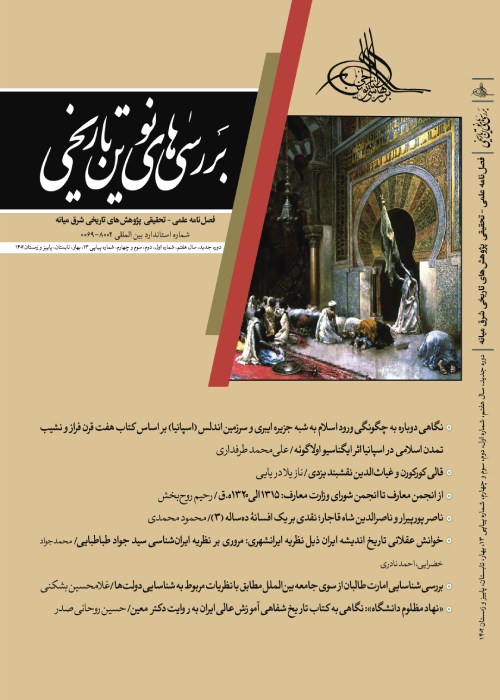A Query of the Position of the Islamic Caliphate in the Islamic Unity Movement or the Contemporary Background of Islamic Convergence
Co-creation, convergence or Islamic unity, known as “the Unity of Islam” in the thirteenth / nineteenth centuries, which continued until the early decades of the fourteenth century, is a thought-provoking and pragmatic movement that made an intensive, compact, and scattered attempt to understand and defend independence and protection in the face of Western colonialism by reviving, reforming, and awakening the Muslim world in which the most important and most credible political units were the Ottomans and Iran. The most important components and constituents of the Islamic Unity movement in this period can be considered Muslim’s unity, colonialism, reform and the Islamic Caliphate; in this article, it has been attempted to address the Islamic Caliphate constituency in the Ottoman Empire, which had been embodied in the reign of Sultan Abdul Hamid II in particular.
Since the Ottoman Empire was at the forefront of the confrontation with the Western world and the Ottoman kings emphasized, at this time more than ever, the claim of the Islamic caliphate which was a factor in attracting Muslims, it is natural that the origin and focus of most of the struggles of the Islamic Unity Movement, is directly the Ottoman Empire or is related to it.
The “Ghazigari” nature of the Ottoman Empire and the historical memories of the Muslim world from the Ottoman victories in the face of the Christian and remaining power of the Empire to resist Western colonial expansionism, gave a special place in the Ottoman Empire in the Islamic Unity Movement, which was considered as a political, cultural and military investment for Ottomans.
In the Qajar era, the Shiite clerical establishment had achieved unprecedented independence and influence, and through it a part of the first Shiite scholars had played a prominent and effective role in the reform efforts in general and the Islamic Unity Movement in particular. Despite the differences in views and disagreements that lie in their ways, the ideas and struggles of prominent figures of the Islamic Unity Movement, leave such a profound, fundamental, and decisive impact on the Islamic world that the roots of many of today’s developments in the Muslim world must be sought in the context of that movement and take advantage of the experiences of the Islamic Unity Movement in dealing with today’s problems in the Muslim world.
- حق عضویت دریافتی صرف حمایت از نشریات عضو و نگهداری، تکمیل و توسعه مگیران میشود.
- پرداخت حق اشتراک و دانلود مقالات اجازه بازنشر آن در سایر رسانههای چاپی و دیجیتال را به کاربر نمیدهد.


